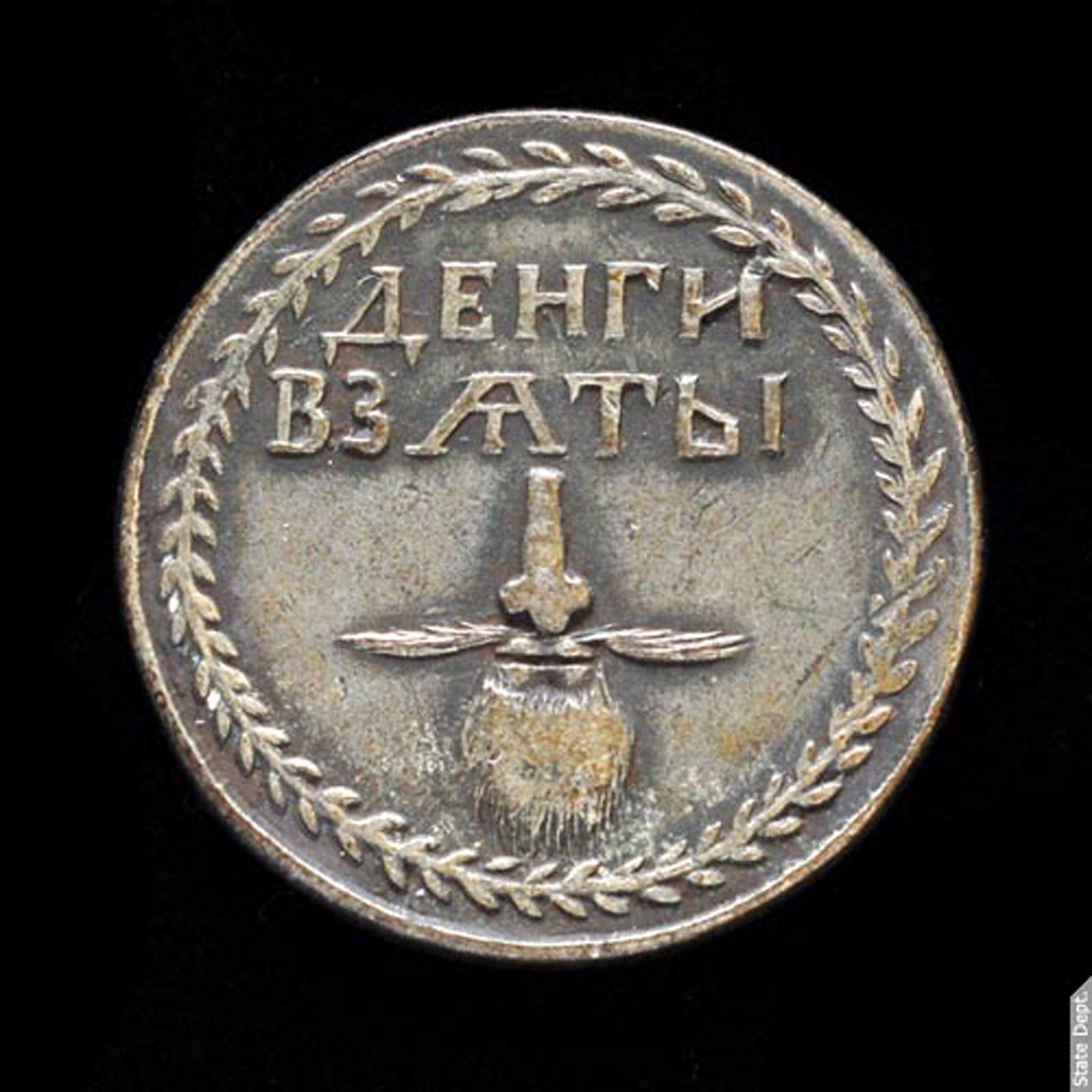Rhodri Marsden's Interesting Objects: Peter the Great's beard token

* It doesn't seem like 316 years ago this week, does it, since Peter the Great returned to Moscow from a trip to Western Europe with a burning desire to modernise the country of his birth. Widespread political, military and social reforms were to follow over the next few years, but Peter knew exactly where to start. Beards.
* The Boyars, the elite noblemen that made up Peter's advisory council, all wore hefty beards. To Peter, this represented orthodoxy and stasis – very much yesterday's fad. So, as they came to welcome him back from his travels that day, he took out a pair of scissors and lopped their beards off.
* This rampant beardism was to gather pace over the next few weeks. He introduced a beard tax, whereby the substantial sum of 100 roubles had to be paid if you wanted to continue wearing your beard. When paid, the bearded man was given a token featuring a picture of a large beard below the words 'The money has been taken', with 'The beard is a superfluous burden' on the flipside as a reminder of the sheer pointlessness of his facial hair.
* The considerable pressure on upper-class men to shave was documented in satirical cartoons of the day, such as 1705's rib-tickling 'Barber Wants To Cut The Religious Schismatic's Beard'. Peasants, of course, couldn't afford 100 roubles and were largely left to roam in a bearded state, unless they wanted to enter cities, in which case they had to cough up the sum of one kopek.
* Peter's antics with scissors would extend to chopping pieces off the long, traditional cloaks in order to push through what he saw as important clothing reforms, but his vicious pogonophobia in particular became a rather bizarre symbol of the Enlightenment. The beard tax was eventually abolished in 1772.
@rhodri
Join our commenting forum
Join thought-provoking conversations, follow other Independent readers and see their replies
Comments